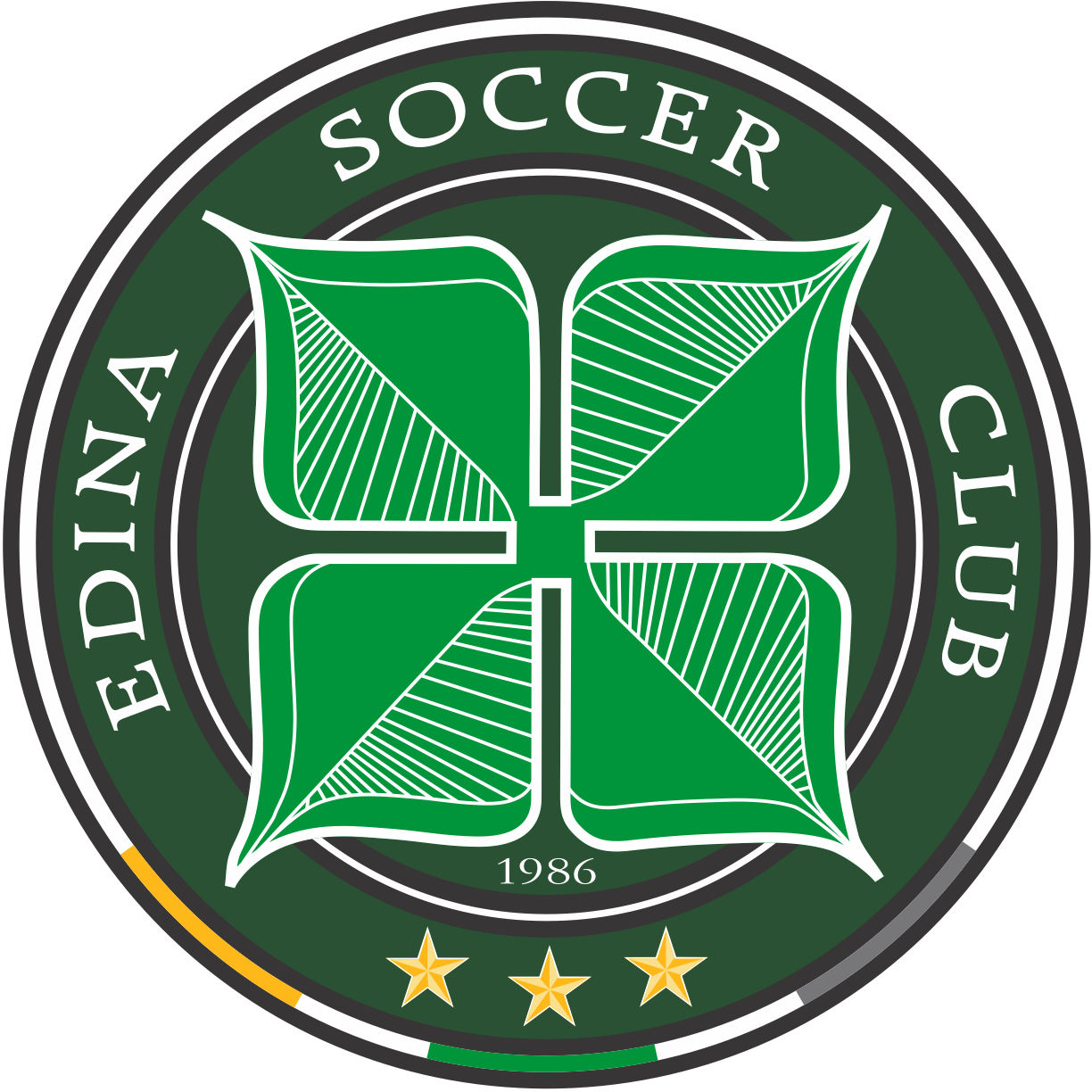ESC DEVELOPMENT PLAN
As a player grows at ESC from U8 to U19, their experience in soccer will be shaped by a variety of different coaches, programs, and developmental settings. This page should provide an overview of the pathway through the age groups, and the developmental objectives along the way.
In every age group players' experience should be built upon a foundation of play - enjoying the game in every form, from the full team environment, to an unsupervised game among friends. In each age group, coaches will introduce progressively more advanced technical and tactical concepts and training scenarios. Alongside this progression comes the addition of new programs to help players rise to the challenges of more competitive levels of play.
For more details on specific additional program offerings visit:
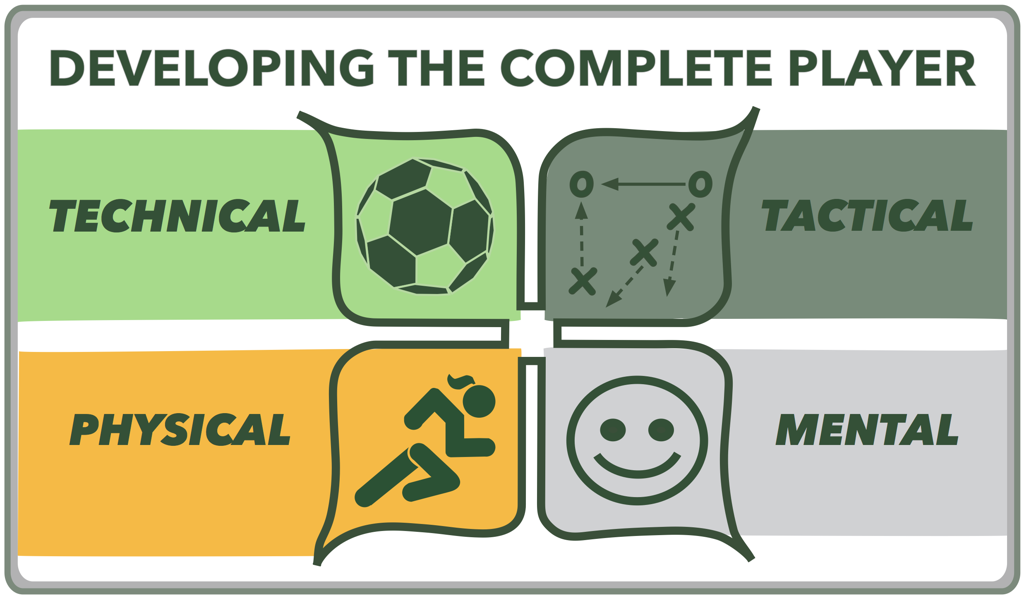
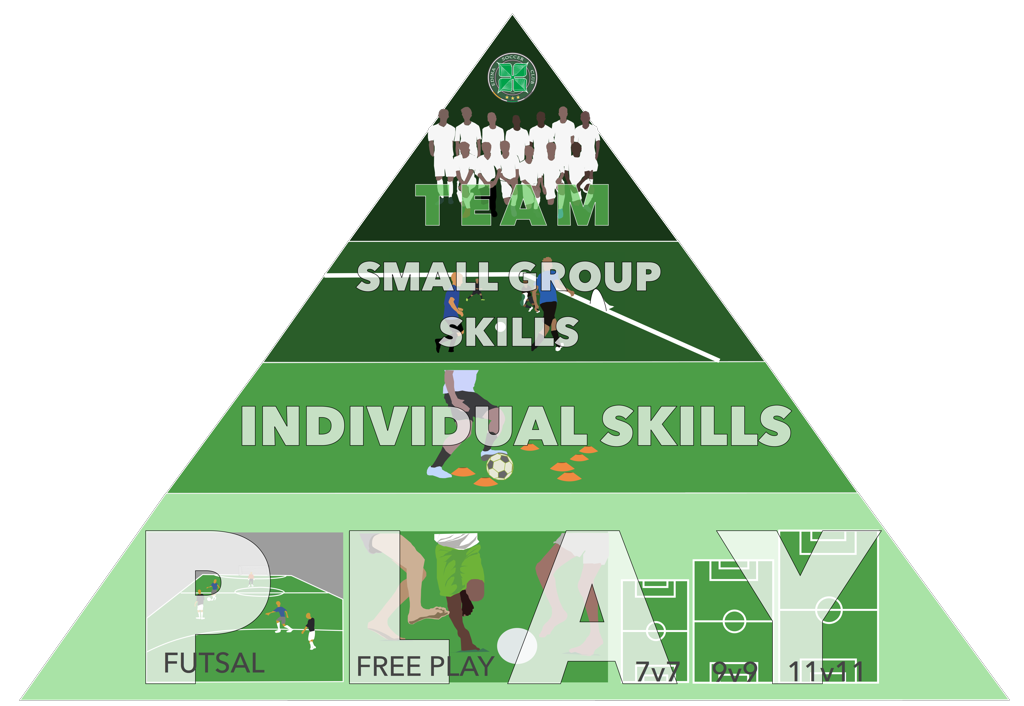
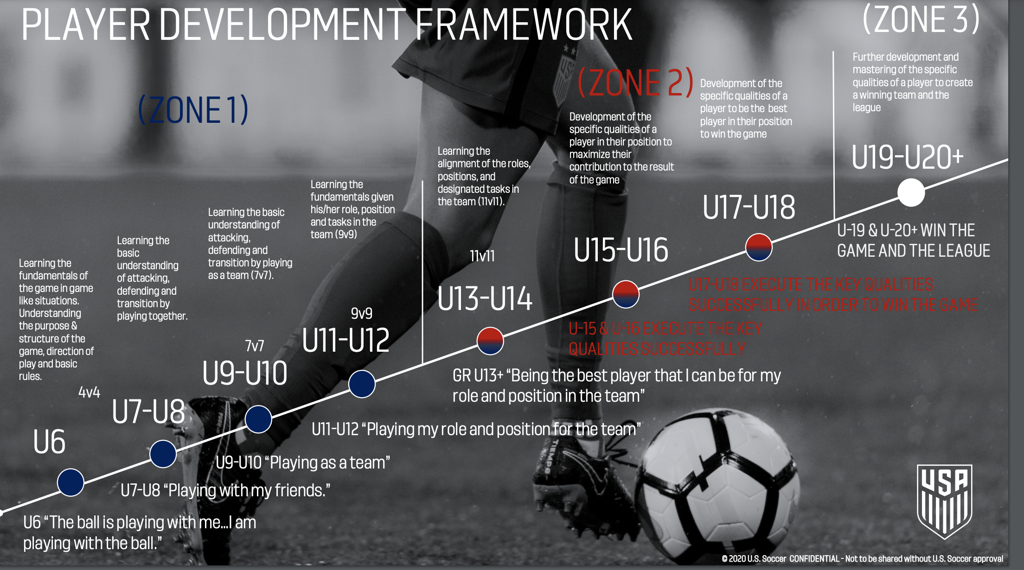
DEVELOPMENT PROGRAMS
The pages below are here to provide a brief overview of the development program for each age group from U9-U18. The pages offer an overview of the technical, tactical, physical, and psychological/social development objectives, as well as a few sample training activities that represent the type of activities players will experience in each age group. The Development Objectives for each age group build upon those from the previous years, and the training activities in each age will also incorporate concepts that players learn in their earlier years.
The U9 age group is the first or second year as part of a two or three year cycle from U8/U9 through U10. By the end of the U10 cycle players will learn a variety of individual ball skills and team concepts, in addition to building a strong physical, psychological and social foundation that will make strong individual players, teammates and age groups for the years to come.
In the U10 age group players continue to learn team training and competitive concepts, with a strong focus on developing good techniques. Small group functional training focuses on attacking and defending in groups of two and three, with an increasing emphasis on goal scoring. Players are expected to show a growing understanding of the rules of conduct in the team environment.
U11 is a year of transition as teams move from 7v7 to 9v9, and enter a new two-year cycle ending with U12. Players are growing physically, and are pushed to develop the endurance to play longer games on larger fields. Players will continue to build on their foundation of technical skill and tactical development and progress in their understanding of larger teams concepts. Principles and roles are placed in a context of positional awareness.
U12 is the second and final year of 9v9 before the transition to the full 11v11 game. The developmental objectives expand upon those introduced at U11. New technical elements include: understanding of roles within multiple 9v9 systems of play, principles of play, and combination play. New physical elements include: aerobic endurance, perception, and awareness. New psychological/social elements include: motivation, communication, and commitment.
U13 is a transitional year, as players move into the full 11v11 game. Physically there is often a wide gap in development between players and teams, but a focus on developing a solid technical and tactical foundation will help players and teams succeed in the years to come. Practices should be inclusive, highly competitive, and something that players look forward to!
In the second year of 11v11 soccer players build on the tactical knowledge they gained at U13, learning more complex 11v11 systems of play, and introducing new concepts in attacking and defending. Practices should be inclusive, highly competitive, and something that players look forward to!
In the U15 age group many players begin playing for their high school teams in the fall season. A high level of commitment is expected at the NPL level, as many players begin the process of pursuing soccer at a collegiate level. Practices should be inclusive, highly competitive, and something that players look forward to!
PATHWAY, PROGRAM, AND LEAGUE OVERVIEW
The info-graphics below provide an overview of the competitive pathway that our teams are on in the local, regional, and national levels, the programs that ESC provides, as well as some additional events that we send teams to in each age group.
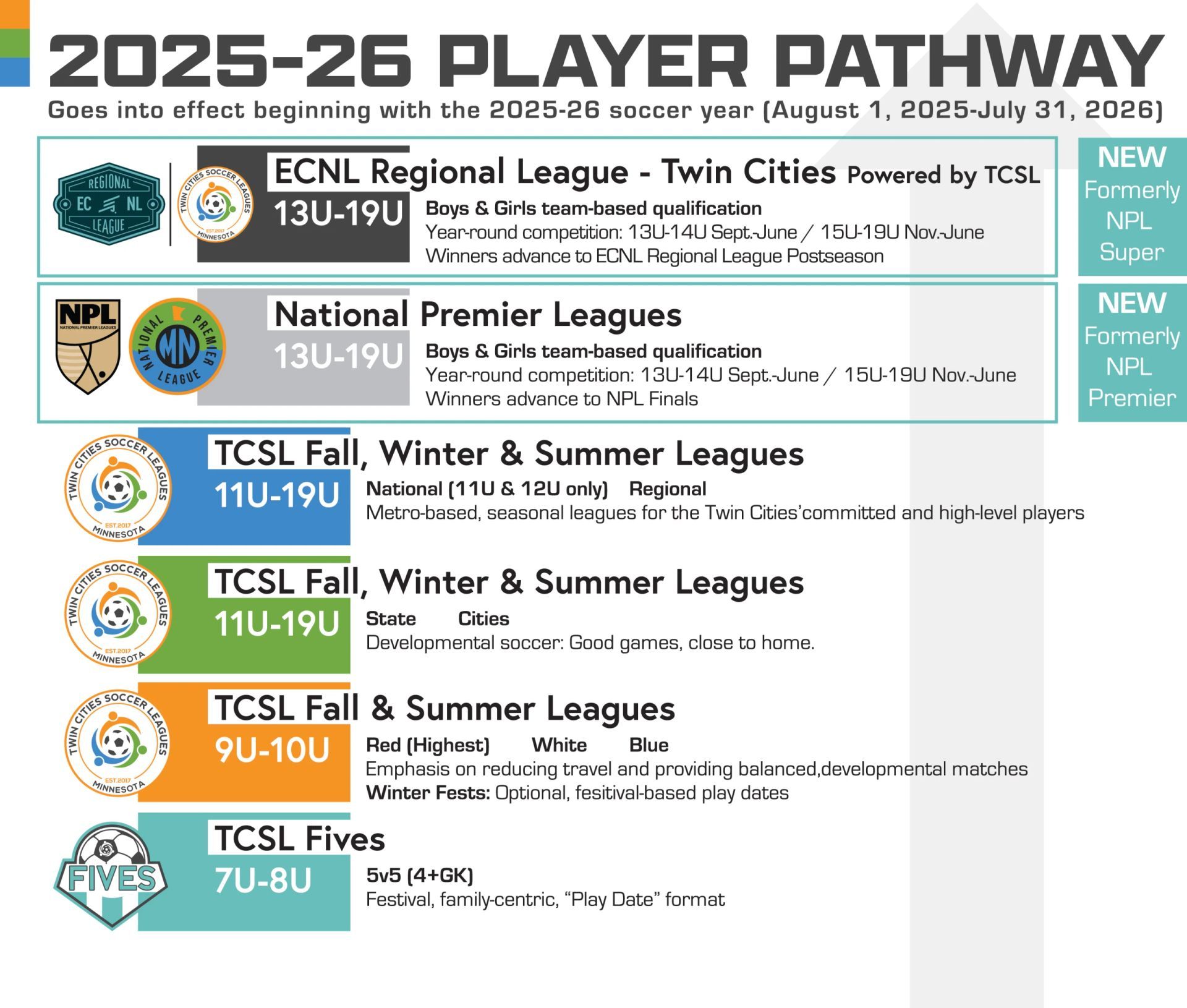
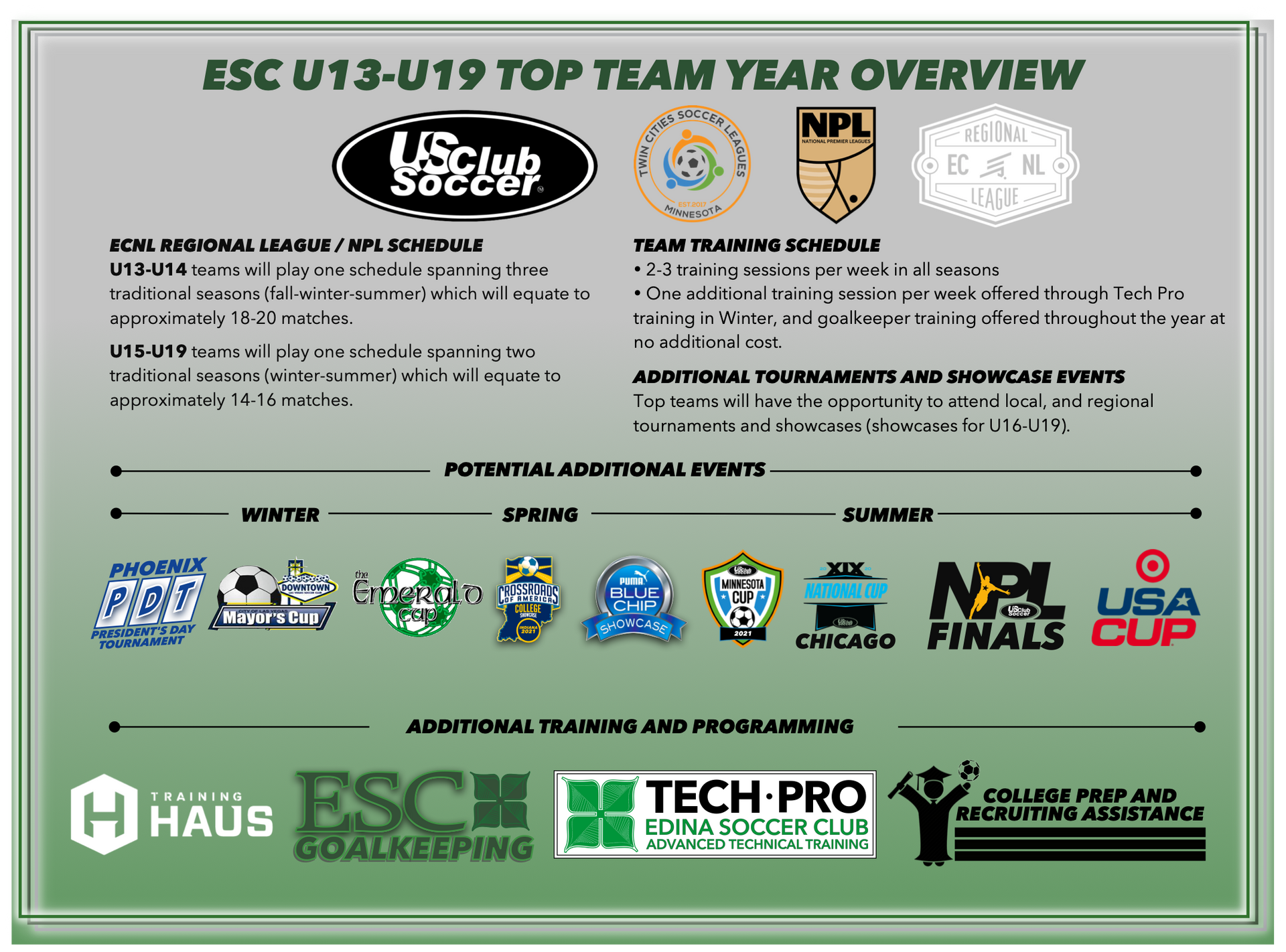
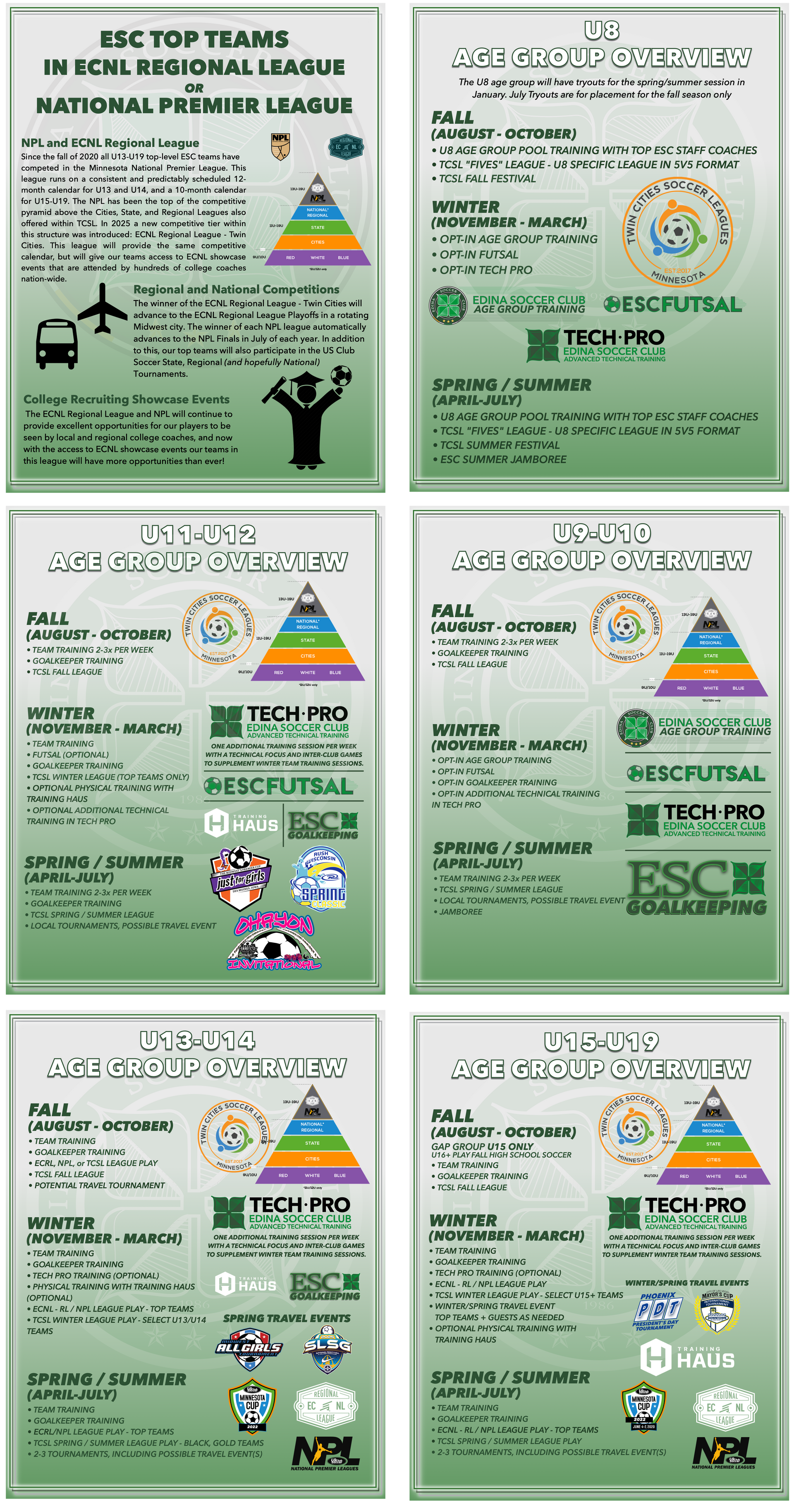

Play - Practice - Play
One methodology that ESC utilizes is what US Soccer termed "Play-Practice-Play" which is a training session format that has the players beginning the session with a small-sided game that introduces the training topic for the day. The coach leads this game with guided questions and asks the players to try to identify ways to solve certain problems or scenarios on the field. From there the team moves into a training phase, which expands on the session topic and challenges the group to solve more specific scenarios. Finally the session concludes with game play in the largest format possible given the number of players. This is not the only methodology ESc incorporates in the training environment, but one that the players enjoy and thrive in!
For more information on the research and development of this methodology please refer to US Soccer's informational PDF linked here:
